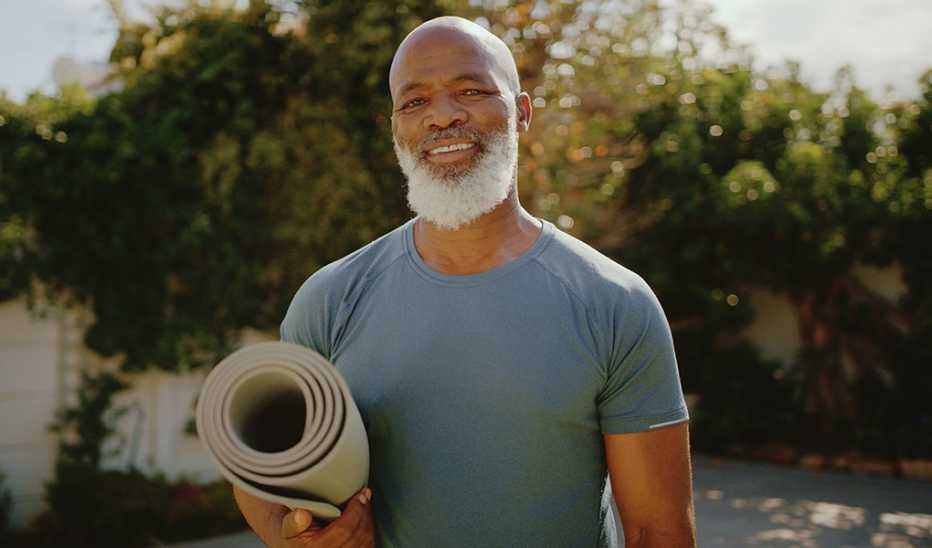Challenges


Quick Win
Adding yoga poses and breathing to your day may help you calm your mind and strengthen your body.
Try This Today
- Do your research. There are many different styles of yoga. A basic Hatha yoga class, for example, tends to be slower paced, while Vinyasa or “flow” yoga is typically faster, with one pose flowing into the next. Restorative yoga, also called Yin yoga, is a gentle form of yoga that focuses on passive stretches and relaxation. Whatever style you choose, look for a class geared to beginners.
- Talk to your doctor. Certain medical conditions, such as osteoporosis or glaucoma, can be exacerbated by certain yoga postures. If you have a chronic health condition, talk with your health care provider before starting a yoga practice.
- Adopt a beginner’s mind. Beginner's mind, a concept in Zen Buddhism, can help you learn and practice without expectations or judgment.
- Take it slow. Remember that yoga is a noncompetitive activity. During the class, listen to your body’s signals, and back off if you feel pain or discomfort. Remember, too, that poses are not one-size-fits-all. Your teacher should be able to help you with modifications and adjustments if a pose is too challengin
Why
According to the National Center for Complementary and Integrative Health, preliminary research indicates that yoga may help relieve stress and improve mental health. In a group of 52 women in Iran, average age 33, stress, depression and anxiety significantly decreased after 12 sessions of yoga (three sessions a week for four weeks), according to a 2018 report in the International Journal of Preventive Medicine.











More From Staying Sharp
Would You Rather: Staycation or Vacation?
Discover the pros and cons of staycations and vacations to decide what's best for you
Connecting With the Breath
In this exercise, focus on your breath in one particular part of your bodyThe Benefits of Dance for Brain Health
Improve focus and navigational skills with dance classes and support your brain health